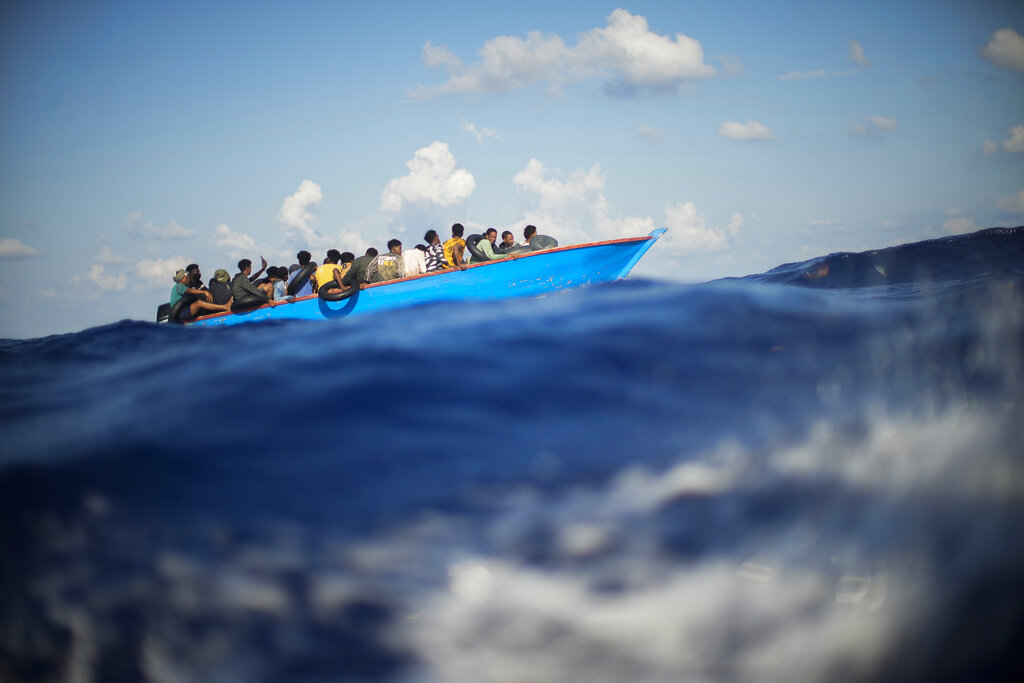EU interior ministers met in Stockholm last Thursday to discuss ways to increase the number of returns of irregular migrants to their countries of origin, including by further restricting the issuance of visas to nationals of “non-cooperative” countries.
“It is clear that in an area without internal borders, we need a Europe-wide policy to deal with asylum and migration issues,” said Belgium’s State Secretary for Asylum and Migration Nicole de Moor (CD&V) before the meeting.
The relevant ministers from national governments met for the first day of informal ministerial talks under the new Swedish EU presidency, which focused on asylum, migration, and home affairs.
For a “better return policy”
For de Moor, it is a question of having “stronger borders, more solidarity between the member states, and a better European return policy, because the subject of return is crucial.
“We need to speak with one voice when addressing nationals of third countries who do not cooperate sufficiently with our return policy,” she insisted.
“We have a very low return rate”
“We see irregular arrivals increasing (…) Returning those who are denied asylum in Europe is a very important issue,” added Swedish Migration Minister Maria Malmer Stenergard.
Of the approximately 340,500 “return” decisions issued across Europe in 2021, just 21 percent were actually implemented, according to Eurostat.
“We have a very low rate of returns,” admitted European Commissioner for Home Affairs Ylva Johansson. “We can make progress to increase their number and make them faster,” she added.
Using visas as leverage
In 2020, a mechanism at the European level came into force to use visas as leverage to get third countries to take back their nationals, and the Swedish presidency of the EU Council considers it “crucial to exploit the full potential of this mechanism.”
“There are some third countries for which measures could be taken quickly to improve the current insufficient level of cooperation,” the office of the Swedish presidency said in a preparatory document for the meeting, but Germany has expressed its “reservations” on the subject. Interior Minister Nancy Faeser said she favors the conclusion of migration agreements, particularly with North African countries, “allowing for legal channels (of migration) on the one hand and effective repatriation on the other.”
So far, only one country sanctioned by the EU
Currently, only one country, Gambia, is under sanction by the EU for “lack of cooperation,” and even then, the sanctions are lightweight: The conditions for granting a visa for the Schengen Area to Gambian nationals have been tightened and the fees have increased to €120 (from €80 on average).
The European Commission had also proposed restrictive visa measures against Iraq and Bangladesh in 2021. According to Commissioner Johansson, who visited Dhaka in November, the threat of sanctions has prompted Bangladesh to cooperate. EU heads of state and government had in December 2021 called for “all relevant European tools, including development aid, trade and visas” to be used as “levers” in migration matters.
Movement of migrants in the EU
Before the meeting on Thursday morning, Nicole de Moor announced the launch of new prevention campaigns to avoid secondary movements of migrants within the Union, a phenomenon that has long worried Belgium and is responsible, according to the secretary of state, for much of the saturation of the reception network. The “prevention” campaigns target Afghans, Burundians, and Eritreans, “nationalities common in secondary migration.”





